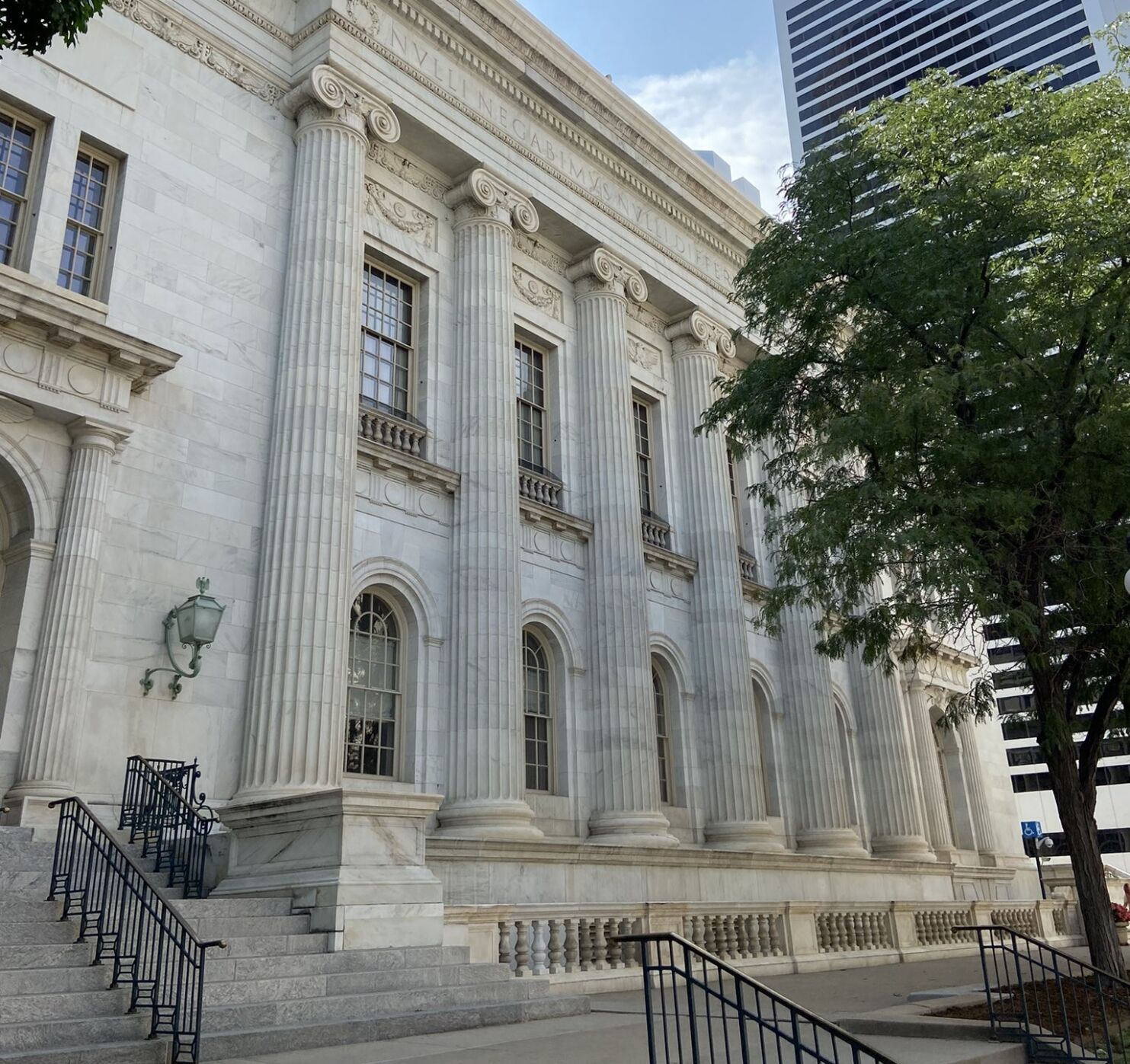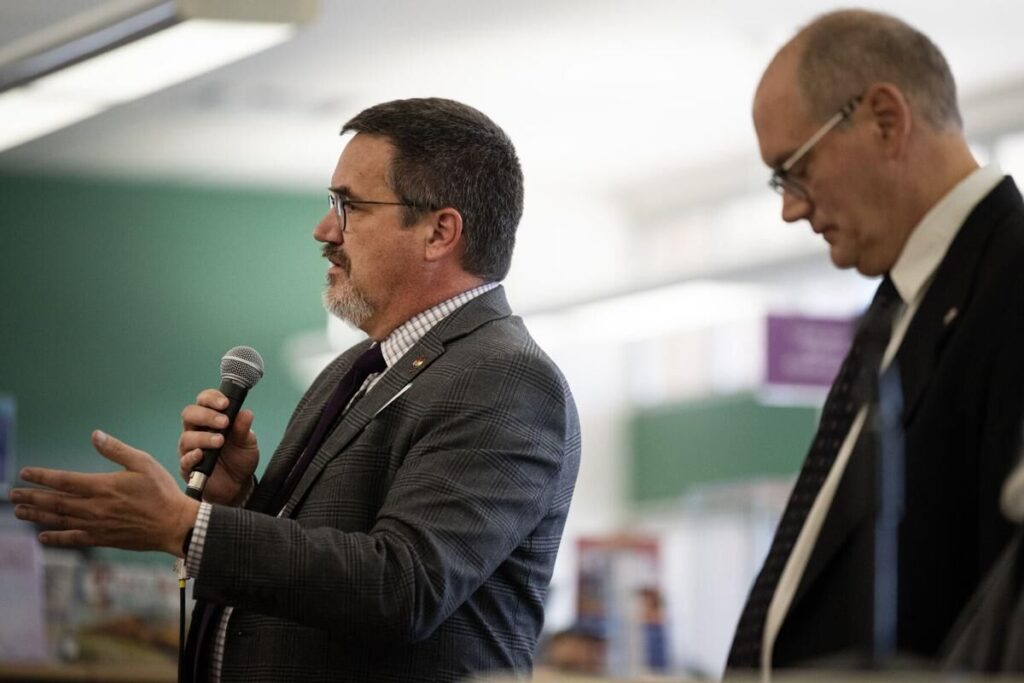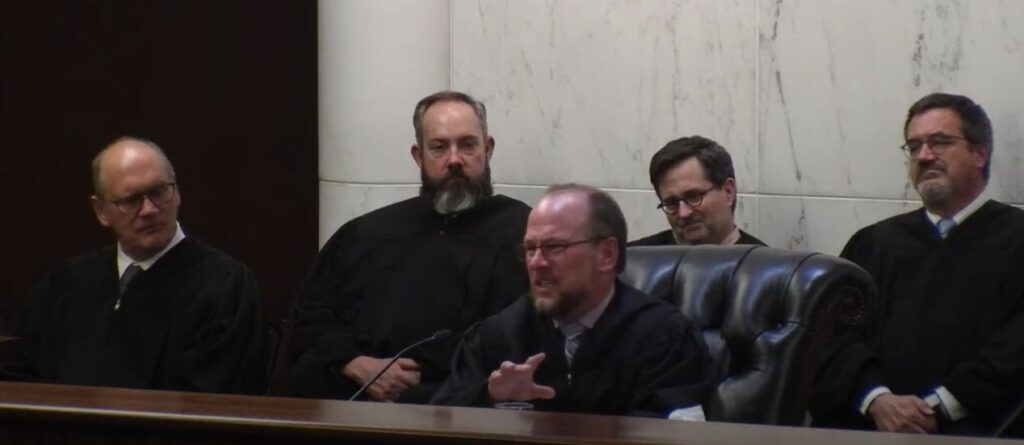10th Circuit upholds longer sentence for cognitively-impaired man, says there ‘not a right answer’

Even while recognizing the defendant’s only sexual offense happened 25 years ago, that he had served his prison sentence, and that he had the cognitive abilities of a second grader, the federal appeals court based in Denver declined to order a lesser sentence for Kayode Dobosu’s failure to comply with certain conditions of his sex offender treatment.
A three-judge panel of the U.S. Court of Appeals for the 10th Circuit on Wednesday emphasized its limited power to second-guess the trial judge who sentenced Dobosu to five years of supervision for, among other things, visiting the Denver Zoo with his social group for intellectually-disabled people.
“(T)here is simply not a right answer when it comes to this corner of the discretionary sentencing context,” wrote Judge Allison H. Eid in the panel’s June 13 order.
Dobosu is required to register for life as a sex offender, but courts have repeatedly ordered him into supervision and sex offender treatment stemming from registration-related offenses. His most recent discharge from treatment prompted the government to seek Dobosu’s arrest after Dobosu did not comply with the terms of his program.
Specifically, Dobosu’s violations were possessing a personal computer and PlayStation 3, which were not connected to the Internet and which his probation officer tacitly approved; visiting places where children were present as part of his social group’s activities; and receiving consensual text messages from men that featured pictures of genitals.
A spokesperson for the National Association for Rational Sexual Offense Laws said Dobosu’s case illustrated the inherent problems of mandating lifetime registration as a sex offender, even when a person has not recommitted any sexual offense in decades.
“The treatment he is being required to undergo has nothing to do with his original offense. Rather, it was imposed more than two decades later due to his failing to keep his address current,” said Sandy Rozek, NARSOL’s communications director. “NARSOL’s view is that anyone who finds themselves in Mr. Dobosu’s circumstances would have difficulty complying with the sex offender treatment program’s requirements. Providers typically require that a person have no sexual relationships or sexual urges. Such expectations are not realistic nor are they constitutional in our view.”
At age five, Dobosu was placed in foster care and later moved to New York City to live with an adoptive father and 16 other children. While there, three of his brothers sexually abused him. He suffers from post-traumatic stress disorder, is bipolar and is “child-like,” his lawyer wrote about Dobosu’s intellectual abilities.
In 1997, Dobosu received a conviction in New York for sexually assaulting a 9-year-old girl. He served three years in prison, with the requirement to register for life as a sex offender.
Dobosu repeatedly got in trouble for failing to comply with the registration requirement. In 2003, he moved to Colorado, but subsequently pleaded guilty in Denver District Court for not registering. A judge sentenced him to five years of intensive supervision, but in 2009, he received 90 days in jail and five more years of supervision. In 2012, he pleaded guilty to violating federal sex offender law by failing to disclose his current address.
He received additional sentences to supervised release and incarceration in 2015 and 2016 for violating registration and treatment conditions. In total, since his 2000 release from prison, Dobosu spent more than three years incarcerated. In that time, there was no indication he tried to sexually reoffend with a minor.
In mid-2020, treatment provider RSA, Inc. discharged Dobosu for violating program conditions with his Internet-capable devices and explicit text messages. His federal probation officer petitioned for Dobosu’s arrest, also mentioning how his social group of intellectually disabled adults visited places “specifically designed for children,” like the zoo, Denver’s Downtown Aquarium and local museums. Such visits were also a violation.
The government agreed that incarceration was not appropriate, but asked for U.S. District Court Chief Judge Philip A. Brimmer to impose an additional five years of supervision on Dobosu. Conditions would include participating in sex offender and mental health treatment, government monitoring of electronic devices and a general prohibition on interacting with children.
The additional amount of time would mean Dobosu would have spent more than 13 years under such supervision. Dobosu’s lawyer asked for just two additional years of supervised release, but Brimmer sided with the government.
“Perhaps this is a product of some of the limitations in cognition that the defendant may have, but he’s had many different allegations that he has failed to register as a sex offender,” Brimmer said during sentencing, explaining his belief that Dobosu needed continued supervision so as not to be a risk to the community.
“While perhaps Mr. Dobosu can’t be blamed for him having — you know, it’s not that he actually obtained and sought out Internet devices. But nonetheless, if those things are available to him, he has demonstrated that he will access sex-related materials in violation of rules that have been placed upon him,” Brimmer added.
On appeal to the 10th Circuit, public defender Howard A. Pincus told the appellate court that such a lengthy extension of his client’s supervised release was “manifestly unreasonable.” He argued the only violation for which Dobosu could reasonably take the blame was for receiving sexual text messages, but those did not amount to a crime.
“Again, there were no sexual offenses for decades. That is good reason to think he doesn’t pose a danger,” Pincus told the panel during oral arguments.
“Mr. Dobosu has never completed sex offender treatment,” countered Assistant U.S. Attorney Elizabeth Ford Milani. “I don’t disagree that there hasn’t been a hands-on sexual assault since 1997, according to this record, or anything of that nature. But weighing everything that has happened here and that this was the third revocation for this particular defendant since 2012 … it wasn’t unreasonable for the court to believe some supervision was necessary here to help with the correctional piece.”
Eid, in the panel’s decision, explained how the considerable deference appellate courts give to trial judges essentially ensured Dobosu’s sentence would be upheld. She acknowledged Dobosu’s reasons for a shorter sentence were plausible, but so were Brimmer’s reasons for imposing five years.
“The court below arrived at a reasoned conclusion that five more years of supervised release was appropriate in Dobosu’s case, and that decision fell within the bounds of permissible choice,” Eid wrote.
Ira Mark Ellman of the University of California at Berkeley, who has written and presented about sex offender laws, said data are clear that people who have not reoffended after more than a decade are unlikely to do so in the future. While he acknowledged the rationale behind the 10th Circuit’s opinion, Ellman questioned why the government was continuing to expend resources ensuring Dobosu’s compliance with technical conditions not related to his original offense.
“If his trouble complying with them doesn’t pose a risk to anyone else, why are we doing this to him?” he asked. “I think that’s a reasonable question to raise.”
The case is United States v. Dobosu.













